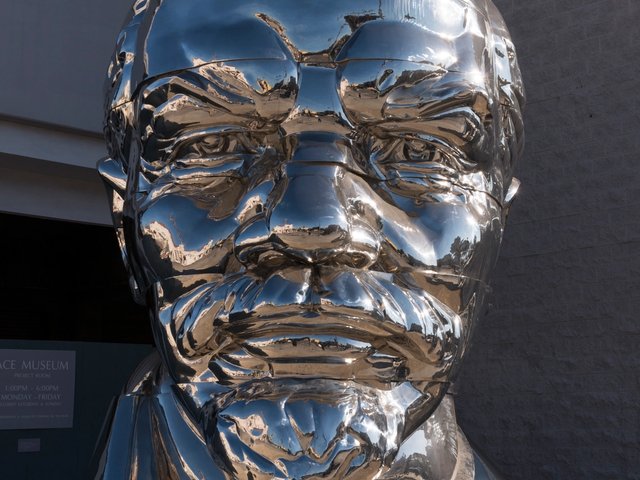The health of the Chinese artist Gao Zhen is deteriorating in detention. According to Human Rights Watch (HRW) and his family, the 69-year-old artist fainted last month and suffers from a chronic back problem. The artist, who generally works with his brother Gao Qiang, has been detained since 26 August 2024 in the city of Sanhe in Hebei Province under charges of “slandering China’s heroes and martyrs” applied retroactively to the Gao Brothers’ satirical depictions of Mao Zedong; 118 of their works have also been confiscated. Gao Zhen’s wife and seven-year-old child, an American resident and citizen, respectively, are not being permitted to leave China.
“Gao Zhen's trial has been postponed for undisclosed reasons, and this might be related to the fact that Gao Zhen's case involves more China-US relations as Gao Zhen is a US permanent resident and especially his son, who is implicated and unable to return to the US, is a US citizen,” source connected to the case who prefers to remain anonymous tells The Art Newspaper. The family “remains hopeful that through the US government continued diplomatic efforts, Gao Zhen will soon be reunited with his family and able to return to the United States”.
In a statement earlier this month, HRW details that detention centre doctors told Gao Zhen’s family that he may have arteriosclerosis, the arterial hardening that can lead to a stroke. His back problem has necessitated his sitting in a wheelchair during meetings with his lawyer, and he has been held in a 40-sq.-m cell with 14 other detainees. His application for medical bail was rejected.
The Gao Brothers were leading figures of Beijing’s pre-commercial avant-garde in the 1990s and 2000s. The works seized from Gao’s studio on 17 November 2024 were made between 2005 and 2009. They include sculptures, paintings and photographs such as the Miss Mao Series, sculptures depicting Mao with breasts, The Execution of Christ (2009), of a Chinese firing squad aiming at Jesus Christ, and Mao’s Guilt (2009), a sculpture of a kneeling, remorseful Mao. The authorities allege the works “distort and vilify former national leaders” under a law introduced in 2021. The charge carries a three-year sentence.
According to HRW, the prosecution of Gao Zhen reflects how the president, Xi Jinping, has directed the Chinese government to tighten ideological control and regulate speech considered unpatriotic. “The Chinese authorities’ prosecution of Gao Zhen both violates his basic rights and indicates a step back toward China’s painful past. Critique about Mao’s brutal legacy, once tolerated, now seems to be off-limits,” Elaine Pearson, the Asia director at Human Rights Watch, said in the statement.
“Gao Zhen is facing years in prison for holding up a mirror to China’s past,” Pearson added. “The Chinese government should break away from its abusive past practices, drop the charges against Gao and immediately release him.”
More than 20,000 people have now signed a Change.org petition calling for Gao Zhen’s release. Shortly after Gao was detained in August 2024, a statement calling for his release circulated by Gao Qiang was signed by 181 Chinese cultural luminaries, including the film-maker Wang Xiaoshuai, the writers Ma Jian, Jung Chang and Ye Fu, and the artists Xiao Lu, Han Bing and Meng Huan. The letter compares Gao Zhen’s detention to the “persecutions of the Cultural Revolution”, during which the Gao Brothers’ father’s death while detained as a “counter-revolutionary” was labelled a suicide. The signatories declared: “We feel that control over the art community in China is tightening, and anyone could become the next detainee. This is clearly not the kind of case the Chinese government would want seen on the international stage as it opens up and globalises.”
This August, the exiled Chinese artist Ai Weiwei published a letter Gao Zhen sent him discussing the parallels between his ongoing detention and Ai’s 81-day detention in China in 2011. “Compared to your time, [the response] feels more like a silent pantomime,” Gao wrote. “To remain completely silent is to willingly surrender the right of free expression that artists ought to have, and the right to freedom of speech we are all entitled to. If my case sets a precedent, it may lead to similar works and artists being subjected to the same fate.”



